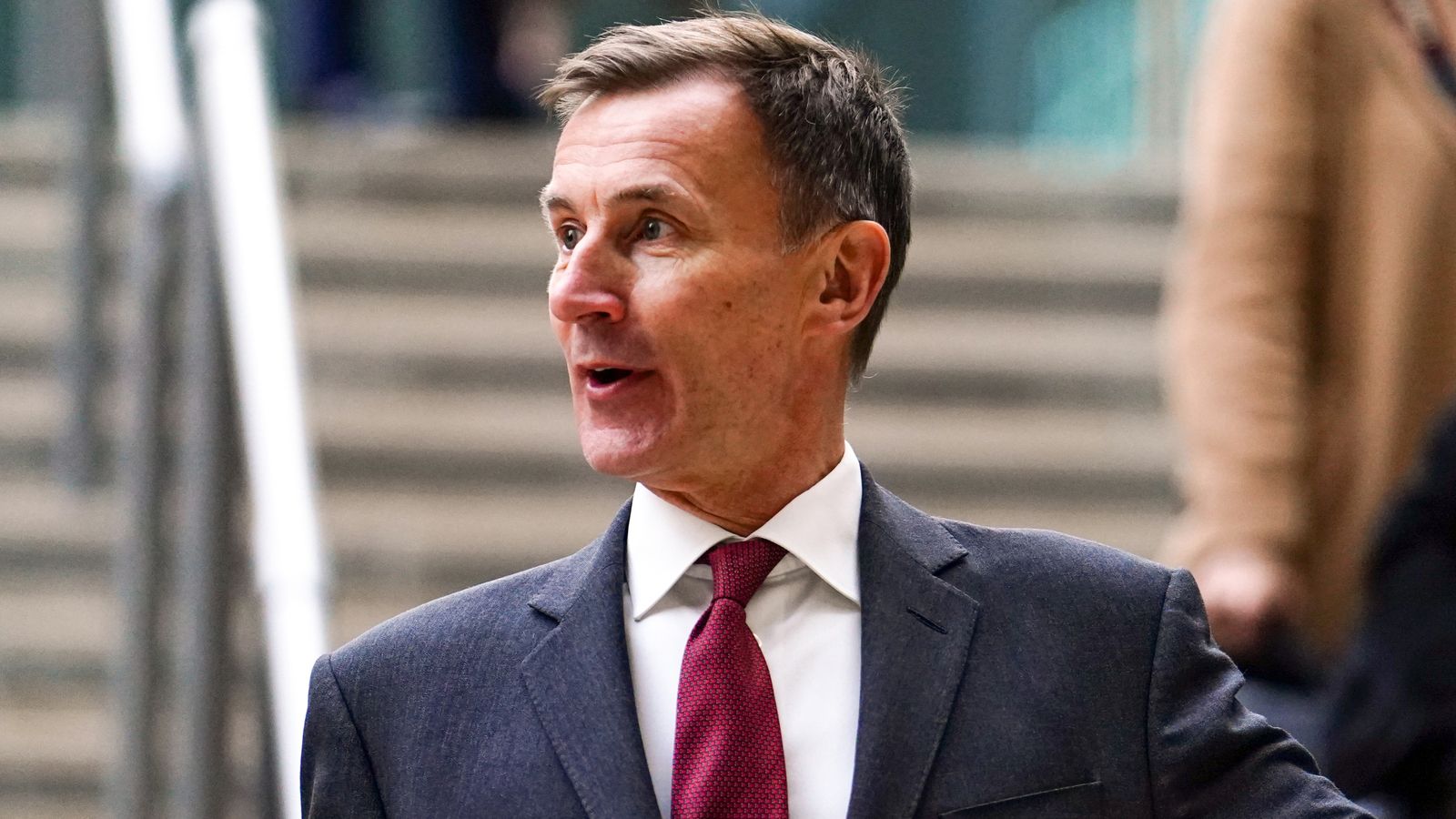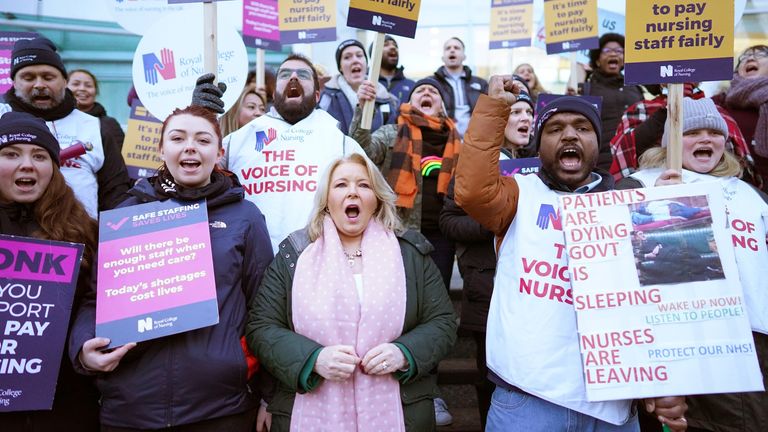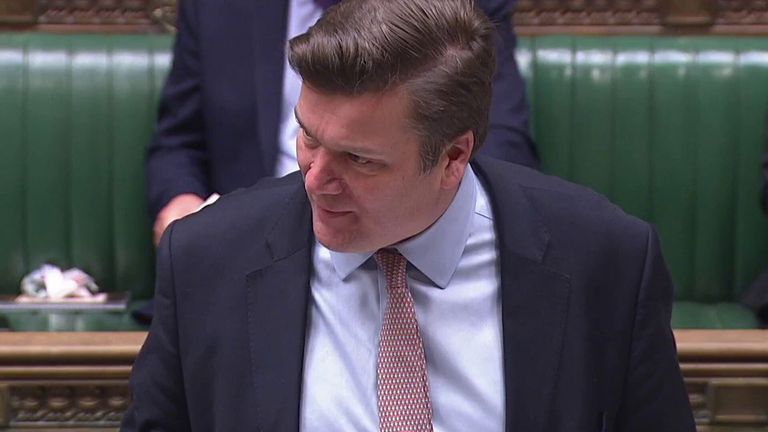Public borrowing in the financial year to date is £30.6bn less than predicted by the Office for Budget Responsibility (OBR), according to the last set of official figures before next month’s budget.
The Office for National Statistics (ONS) reported a £5.4bn surplus for the chancellor in January – aided by the highest January figure for self-assessment income tax receipts since monthly records began in 1999 of £21.9bn.
A poll of economists by the Reuters news agency had forecast a net borrowing figure of almost £8bn.
January’s surplus, however, took the level of borrowing in the 2022/23 financial year so far to £116.9bn, the number-crunchers reported.
While the sum is well down on what the OBR forecast at the time of the autumn statement, the government has consistently argued that now is not the time to splash the cash despite the headwinds from the cost of living crisis.
It has cited the cost of energy bill support for households and businesses on the back of the COVID era aid that saw borrowing hit record levels.
Jeremy Hunt, however, is under pressure from critics to find more money for the NHS, fund higher public sector pay settlements in the face of widespread strikes and extend the current level of the energy support scheme beyond March.
Tory backbenchers are particularly keen for the tax burden to fall as the party languishes behind Labour in the polls.
But there was no change in tone from Mr Hunt in his response to the ONS figures.
“We are rightly spending billions now to support households and businesses with the impacts of rising prices – but with debt at the highest level since the 1960s, it is vital we stick to our plan to reduce debt over the medium-term”, the chancellor said in a statement.
“Getting debt down will require some tough choices, but it is crucial to reduce the amount spent on debt interest so we can protect our public services.”
Read more from business:
Tomato shortage in supermarkets as bad weather hits growers
Most firms will stick with four-day week after trial
The ONS data showed that public sector net debt stood at almost £2.5trn.
The impact of inflation on the cost of servicing government debt also remained clear to see at £6.7bn in January alone.
It was the highest figure for that month since records began in 1997.
Financial experts said that the boost from income tax receipts in January was exacerbated by energy costs coming in lower than predicted.
Economists at KPMG estimated that the Energy Price Guarantee was now likely to cost only around half of the OBR’s £12.8bn forecast in 2023-24, thanks to lower wholesale energy prices.
“However, this will be largely offset by the new Energy Bills Discount Scheme for businesses, with an estimated cost of £5.5bn, providing little near-term relief against a backdrop of wider spending pressures,” they said.
Economist Ruth Gregory at Capital Economics said of the report: “January’s public finances figures suggest the chancellor may have scope for some giveaways in his budget on 15th March.
“But with the OBR poised to slash its medium-term economic growth forecasts, any hopes the chancellor might be able to give away a significant amount of money, while sticking to his previous debt-reduction plans, may be disappointed.”
There was further evidence later on Tuesday morning that the economy is performing better than many, including the International Monetary Fund, expected.
A closely-watched reading of activity in the services and manufacturing sectors both outperformed economists’ forecasts.
The preliminary “flash” reading of the S&P Global/CIPS UK Composite Purchasing Managers’ Index (PMI) jumped to 53.0 in February from 48.5 in January, above the 50 threshold for growth for the first time since July.
The authors said businesses reported a bounce this month, as well as receding price pressures.


